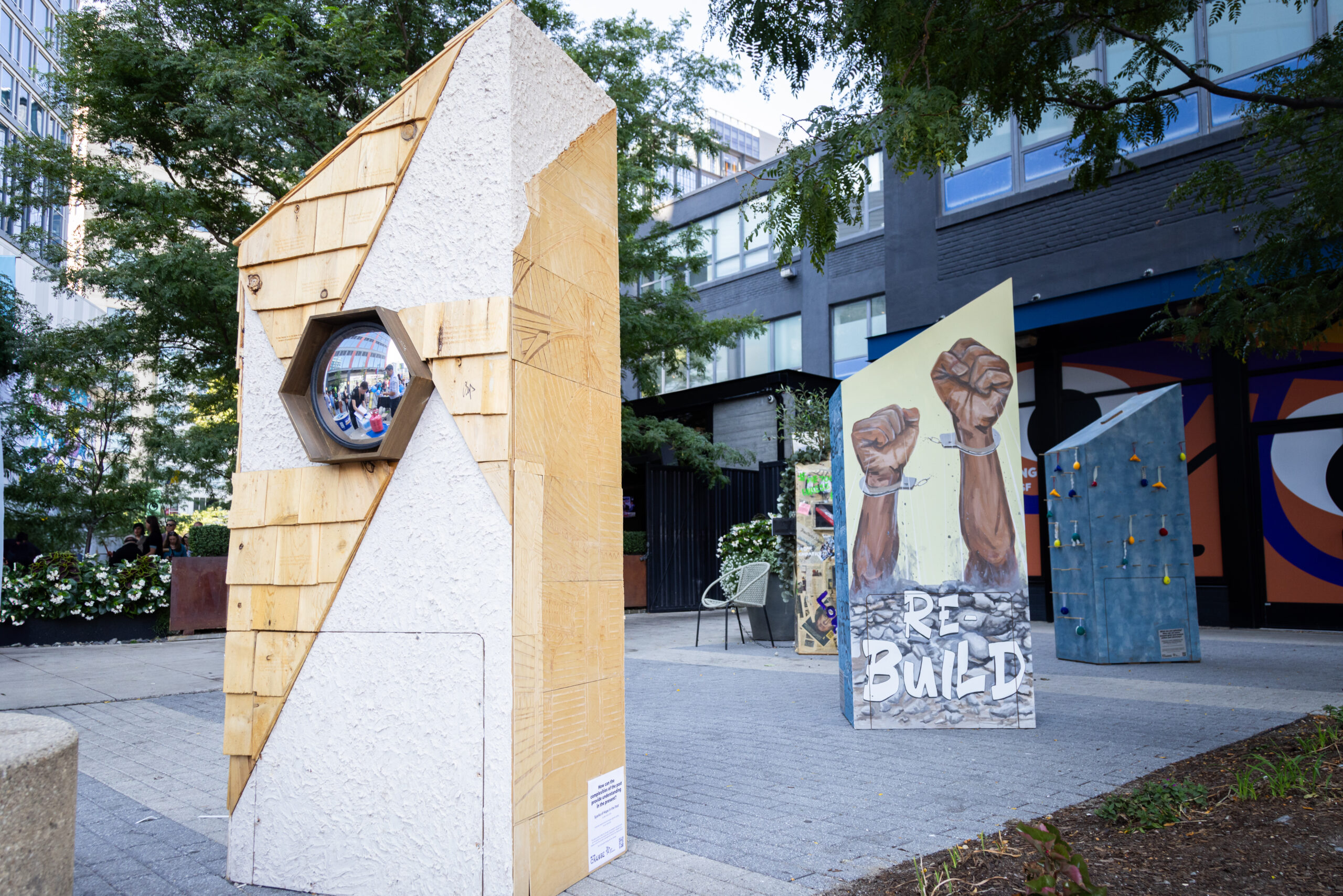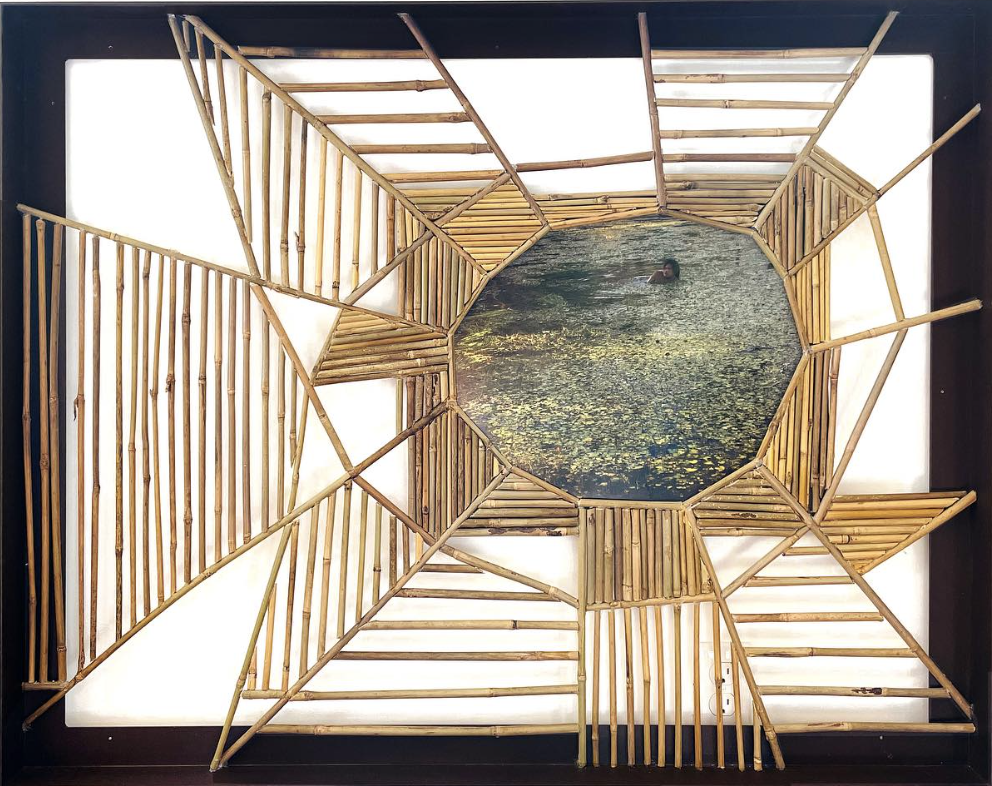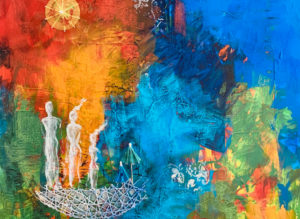Sparks of Hope in the Past
How can the complexities of the past provide understanding in the present?
Published May 7, 2024

COURTESY SEVENPAIR STUDIOS
“One must say Yes to life and embrace it whenever it is found — and it is found in terrible places; nevertheless, there it is. For nothing is fixed, forever and forever and forever, it is not fixed; the earth is always shifting, the light is always changing, the sea does not cease to grind down rock. Generations do not cease to be born, and we are responsible to them because we are the only witnesses they have. The sea rises, the light fails, lovers cling to each other, and children cling to us. The moment we cease to hold each other, the moment we break faith with one another, the sea engulfs us and the light goes out.” – James Baldwin
Ben Sloat argues that one of the greatest injustices our population faces is that of extractive capitalism, and a focus on transactions in the present that ignore the people and history behind them.
Too common in this country, we treat our population as an economy, and not as a society. As a result, singular human aspects, such as our opinions and our attention, are isolated and seen as profit centers for value extraction. The impact in our culture is one of alienation, disconnection, distraction, and overwhelm — the onslaught of constant noise is simply too much for a single human body to tolerate.
Ben Sloat
In his Be the Change tzedakah box “Sparks of Hope in the Past,” Ben explores his own Taiwanese Jewish story and created a piece that invites you to pause; to take a step out of the overwhelming hustle and bustle of our lives; and to contemplate place, history, and humanity. With architectural components collected from Jewish sites in greater Boston and NYC — historical and regional contexts — this piece offers content for long-term consideration.
Engraved across the piece you see faint letters of quotes by Walter Benjamin, an early 20th-century German, Jewish philosopher whose words have particular resonance today. His theories are taught widely in the exploration of the modern-day plight of capitalism that Ben seeks to help us consider. Read more about Ben’s inspiration and the influence of Walter Benjamin in his work here.
Materials: laser etched birchwood, pigment, glass, found materials
How can the complexities of the past provide understanding in the present?
Within the layers and research of this piece, Ben considers the 12th-century Jewish scholar Maimonides’ ladder of giving, each rung up representing a higher degree of virtue:
1. The lowest: Giving begrudgingly and making the recipient feel embarrassed.
2. Giving cheerfully but giving too little.
3. Giving cheerfully and adequately but only after being asked.
4. Giving before being asked.
5. Giving when you do not know who is the individual benefiting, but the recipient knows your identity.
6. Giving when you know who is the individual benefiting, but the recipient does not know your identity.
7. Giving when neither the donor nor the recipient is aware of the other’s identity.
8. The Highest: Giving money, a loan, your time or whatever else it takes to enable an individual to be self-reliant.
Get a sense of Ben’s work by checking out another one of his pieces, called “What the Farmer Saw”, where he uses images and material to convey layers of past, present, and future. It’s also a nod to his inspiration for the Be the Change box.

What The Farmer Saw (Meinong, Taiwan)
COURTESY BEN SLOAT
“One must say Yes to life and embrace it whenever it is found — and it is found in terrible places; nevertheless, there it is. For nothing is fixed, forever and forever and forever, it is not fixed; the earth is always shifting, the light is always changing, the sea does not cease to grind down rock. Generations do not cease to be born, and we are responsible to them because we are the only witnesses they have. The sea rises, the light fails, lovers cling to each other, and children cling to us. The moment we cease to hold each other, the moment we break faith with one another, the sea engulfs us and the light goes out.” – James Baldwin
Stay tuned as Ben’s vision comes to life in the form of his Be the Change tzedakah box, scheduled to go up in The Fenway this August
JArts’ mission is to curate, celebrate, and build community around the diverse world of Jewish arts, culture, and creative expression. Our vision is of a more connected, engaged, and tolerant world inspired by Jewish arts and culture.
Reflections
-
1.
How can the complexities of the past inform the future?
-
2.
How can we make the future brighter by considering how we give?
Want more?
Get curated JewishArts.org content in your inbox


